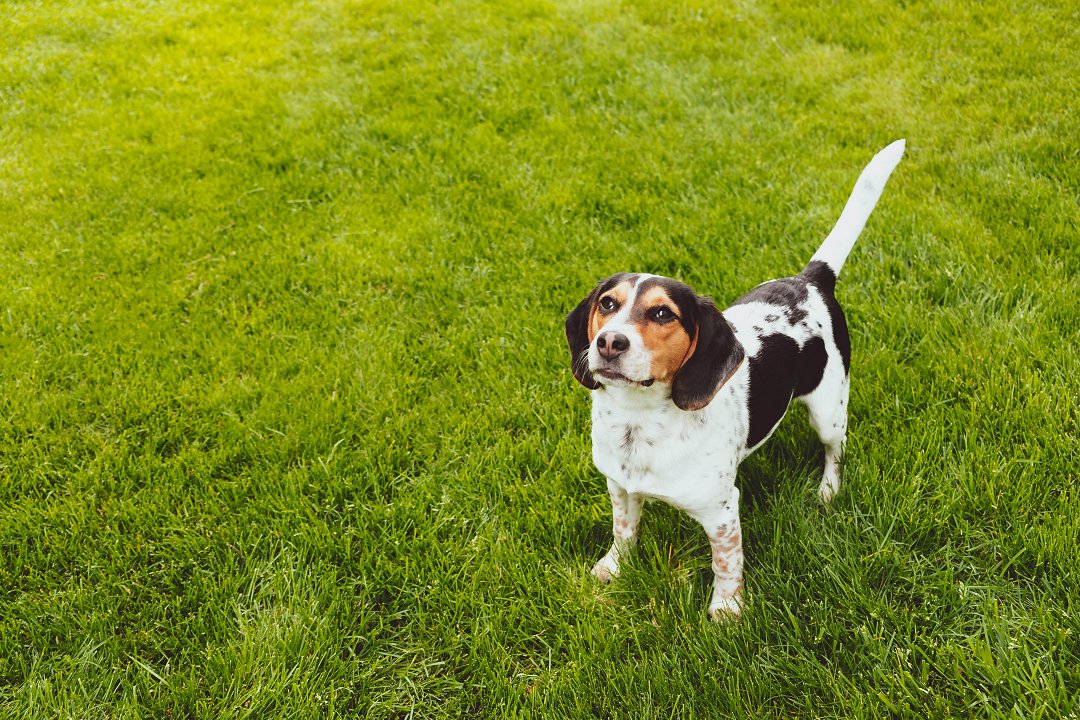Table of Contents
- 1 Introduction: The Best Time to Start Training a Service Beagle
- 2 Unlocking the Potential: Optimal Age and Developmental Stage for Training a Service Beagle
- 3 Tailoring Training: Understanding the Unique Needs of Training a Service Beagle
- 4 FAQs About: When to Start Training a Service Beagle
- 4.1 At what age should I start training my service beagle?
- 4.2 What are the benefits of starting training early?
- 4.3 Can I start training my service beagle if they are older?
- 4.4 How often should I train my service beagle?
- 4.5 What are some important training milestones to focus on?
- 4.6 Should I consider professional training for my service beagle?
Introduction: The Best Time to Start Training a Service Beagle
When to start training a service beagle? If you’ve ever wondered about the ideal time to begin training your service beagle, you’re in the right place. Timing plays a crucial role in shaping a well-behaved and reliable service dog. So, let’s dive into the world of service beagle training and explore the optimal age and developmental stage for starting this journey.
When it comes to training a service beagle, early intervention is key. Puppies are like sponges, eager to learn and explore the world around them. The best time to start training your service beagle is during their puppyhood, ideally between 8 to 12 weeks of age. During this critical period, their minds are receptive to new experiences and they are more adaptable to learning obedience commands, socialization, leash training, and house training.
Now that we understand the importance of early training, let’s move on to the next section and uncover the specific age and developmental stage that unlocks the full potential of a service beagle.
Unlocking the Potential: Optimal Age and Developmental Stage for Training a Service Beagle
When it comes to training a service beagle, timing is everything. Starting the training process at the right age and developmental stage can make a world of difference in unlocking the full potential of your furry companion. In this section, we will explore the optimal age and developmental stage for training a service beagle, and why it is crucial to get it right.
1. Early Socialization: The Foundation of Training
Socialization is a critical aspect of training a service beagle. It involves exposing your beagle to various people, animals, and environments to help them develop appropriate behavior and confidence. The optimal age to start socializing your beagle is between 3 and 14 weeks. During this period, they are more receptive to new experiences and less likely to develop fear or aggression.
2. Basic Obedience: Building a Strong Foundation
Basic obedience training lays the groundwork for more advanced skills. It includes teaching your beagle essential commands such as sit, stay, come, and heel. The ideal age to begin basic obedience training is around 8 to 12 weeks. At this stage, beagles are curious, eager to please, and have a shorter attention span, making it easier to capture their focus and reinforce desired behaviors.
3. Advanced Training: Fine-Tuning Skills
Once your beagle has mastered the basics, you can move on to more advanced training. This stage typically occurs between 6 months and 1 year of age. During this period, beagles have better physical coordination and mental maturity, allowing them to learn complex commands and behaviors. Advanced training can include leash training, house training, positive reinforcement, clicker training, crate training, scent work, and even agility training.
By starting the training process at the optimal age and developmental stage, you set your service beagle up for success. They will be more receptive to learning, have a solid foundation of obedience, and be better equipped to handle the challenges of their future role. Remember, each beagle is unique, so it’s important to tailor the training to their individual needs and abilities.
In the next section, we will delve deeper into understanding the unique needs of training a service beagle. We will explore their specific behaviors, temperament, and how to address any challenges that may arise along the way. So, let’s continue our journey to unlock the full potential of your service beagle.
Tailoring Training: Understanding the Unique Needs of Training a Service Beagle
When it comes to training a service beagle, it is important to understand that each dog is unique and may have specific needs that require tailored training methods. Here, we will explore some of the key considerations to keep in mind when training a service beagle, including socialization, obedience, and specialized training techniques.
Socialization: Building a Solid Foundation
Socialization plays a crucial role in the training of any dog, including service beagles. It involves exposing the dog to a wide range of people, animals, and environments in a positive and controlled manner. Early socialization helps service beagles develop confidence, adaptability, and good behavior in various situations. Here are some important aspects to consider:
- Positive reinforcement: Use treats, praise, and rewards to reinforce positive behavior during socialization sessions.
- Gradual exposure: Introduce your beagle to new experiences gradually, starting with low-stress situations and gradually increasing the level of challenge.
- Variety of environments: Expose your beagle to different environments such as parks, busy streets, and public places to help them become comfortable in various settings.
Obedience Training: Establishing a Strong Foundation
Obedience training is essential for service beagles as it ensures they can follow commands reliably and behave appropriately in public settings. Here are some key aspects to focus on during obedience training:
- Basic commands: Teach your beagle fundamental commands such as sit, stay, come, and heel using positive reinforcement techniques.
- Leash training: Teach your beagle to walk calmly on a leash, responding to gentle guidance and cues.
- House training: Establish a routine for bathroom breaks and reward your beagle for eliminating in the appropriate area.
Specialized Training Techniques: Meeting Specific Needs
In addition to socialization and obedience training, service beagles may require specialized training to perform their specific tasks effectively. Some common specialized training techniques for service beagles include:
- Scent work: Beagles have an exceptional sense of smell, making them well-suited for tasks such as detecting drugs, explosives, or medical conditions. Training them to recognize and respond to specific scents is crucial.
- Agility training: Agility training can help service beagles navigate obstacles and perform tasks requiring physical dexterity.
- Positive reinforcement and clicker training: Using positive reinforcement and clicker training techniques can be highly effective in teaching service beagles complex tasks and behaviors.
Remember, each service beagle is unique, so it is important to adapt training methods to their individual needs and abilities. Patience, consistency, and positive reinforcement are key to successfully training a service beagle.
FAQs About: When to Start Training a Service Beagle
At what age should I start training my service beagle?
The best time to start training a service beagle is during their puppyhood, ideally between 8 and 12 weeks of age. This is when they are most receptive to learning and forming positive associations.
What are the benefits of starting training early?
Starting training early allows your service beagle to develop good behavior and obedience from the beginning. It also helps them become familiar with different environments, people, and other animals, which is crucial for their socialization.
Can I start training my service beagle if they are older?
Yes, you can still train an older service beagle, but it may require more time and patience. Older dogs may have already developed certain behaviors, so it’s important to be consistent and use positive reinforcement to encourage new habits.
How often should I train my service beagle?
Consistency is key when training a service beagle. Aim for short training sessions (around 10-15 minutes) several times a day to keep their attention and prevent them from getting overwhelmed. Regular practice will help reinforce their training and improve their overall behavior.
What are some important training milestones to focus on?
In the early stages, focus on basic obedience commands, such as sit, stay, and come. As your service beagle progresses, you can introduce more advanced skills like leash training, scent work, and even agility training if appropriate. Each milestone builds upon the previous ones, so take it one step at a time.
Should I consider professional training for my service beagle?
Professional training can be highly beneficial, especially if you’re new to training service dogs or if your beagle has specific behavioral challenges. A professional trainer can provide guidance, expertise, and help tailor the training to your beagle’s unique needs.






Leave a Reply